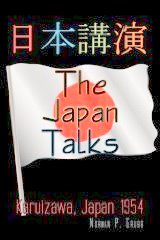By Shingo Ito
May. 24,
2013
TOKYO — Japan on Thursday accused a South Korean newspaper of “dishonorable”
behavior for publishing an editorial suggesting the atomic bombings of Hiroshima
and Nagasaki were “divine punishment.”
The editorial in the Korean and English versions of the Joongang Ilbo daily
on Monday said the 1945 nuclear bombs dropped by U.S. planes, which together
killed more than 200,000 people, were justified.
“God often borrows the hand of a human to punish the evil deeds of men,”
said the editorial, which recalled the activity of Unit 731—a covert Japanese
biological and chemical research facility that carried out lethal human
experiments during the war.
“The cries (of the unit’s victims) reached heaven and the bombs were dropped
on Tokyo and the atomic weapons on Hiroshima and Nagasaki,” it said.
The signed editorial said the carpet-bombing of the German city of Dresden
and the atomic bombs on Nagasaki and Hiroshima were acts of “divine punishment
and human retaliation.”
In Dresden’s case it marked retribution for the Nazi Holocaust and in
Japan’s case revenge for “the Asians steamrollered by Japan’s militaristic
nationalism”, it said.
At a news conference in Tokyo, Chief Cabinet Secretary Yoshihide Suga
denounced the remarks as “quite dishonorable.”
“We strongly protested to the staff of South Korea’s Joongang Ilbo daily,”
the top government spokesman said. “Our country is the only atom-bombed nation.
We will never forgive such remarks.”
The editorial also accused the Japanese government and Prime Minister Shinzo
Abe of denying the worst of Japan’s wartime abuses and concluded with the
warning: “God may feel that retaliation against Japan hasn’t been complete.”
The article was published as ties between the two countries have worsened
after outspoken Osaka Mayor Toru Hashimoto said that women forced to provide
sex during World War II were a military necessity.
Up to 200,000 “comfort women” from Korea, China, the Philippines and
elsewhere were forcibly drafted into brothels catering to the Japanese military
during WWII, mainstream historians say.
In Seoul, there were protests Thursday outside the Japanese embassy, mostly
by army veterans groups angered at Hashimoto’s contention that South Korean
soldiers serving in the Vietnam War had also abused women.
The protestors, carrying placards denouncing Abe and Hashimoto, scuffled
with police as they chanted anti-Japanese slogans outside the mission.
Japan has also drawn opprobrium in South Korea and China after lawmakers
visited a controversial war shrine, which honors the country’s 2.5 million war
dead, including 14 men convicted of war crimes by a U.S.-led tribunal.


















